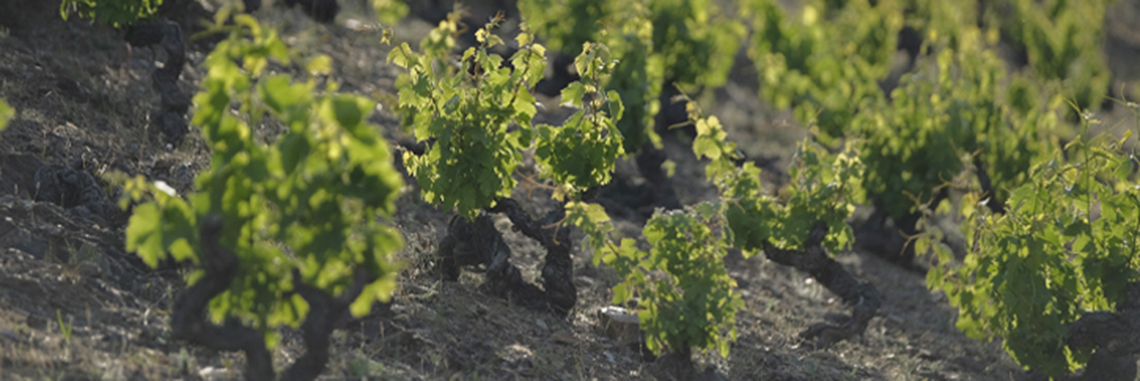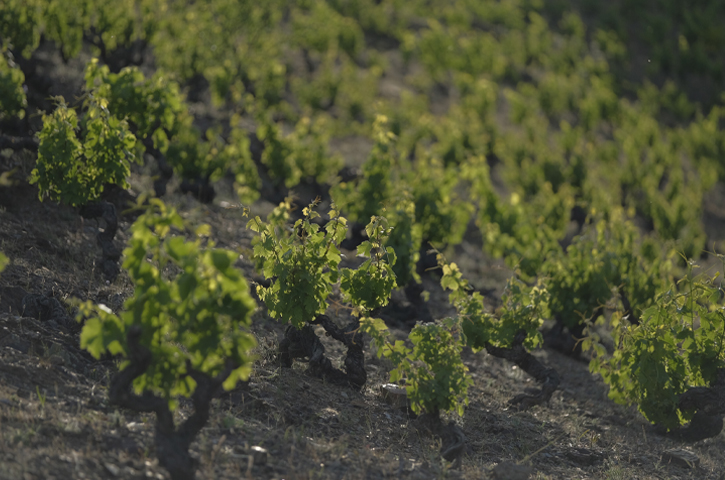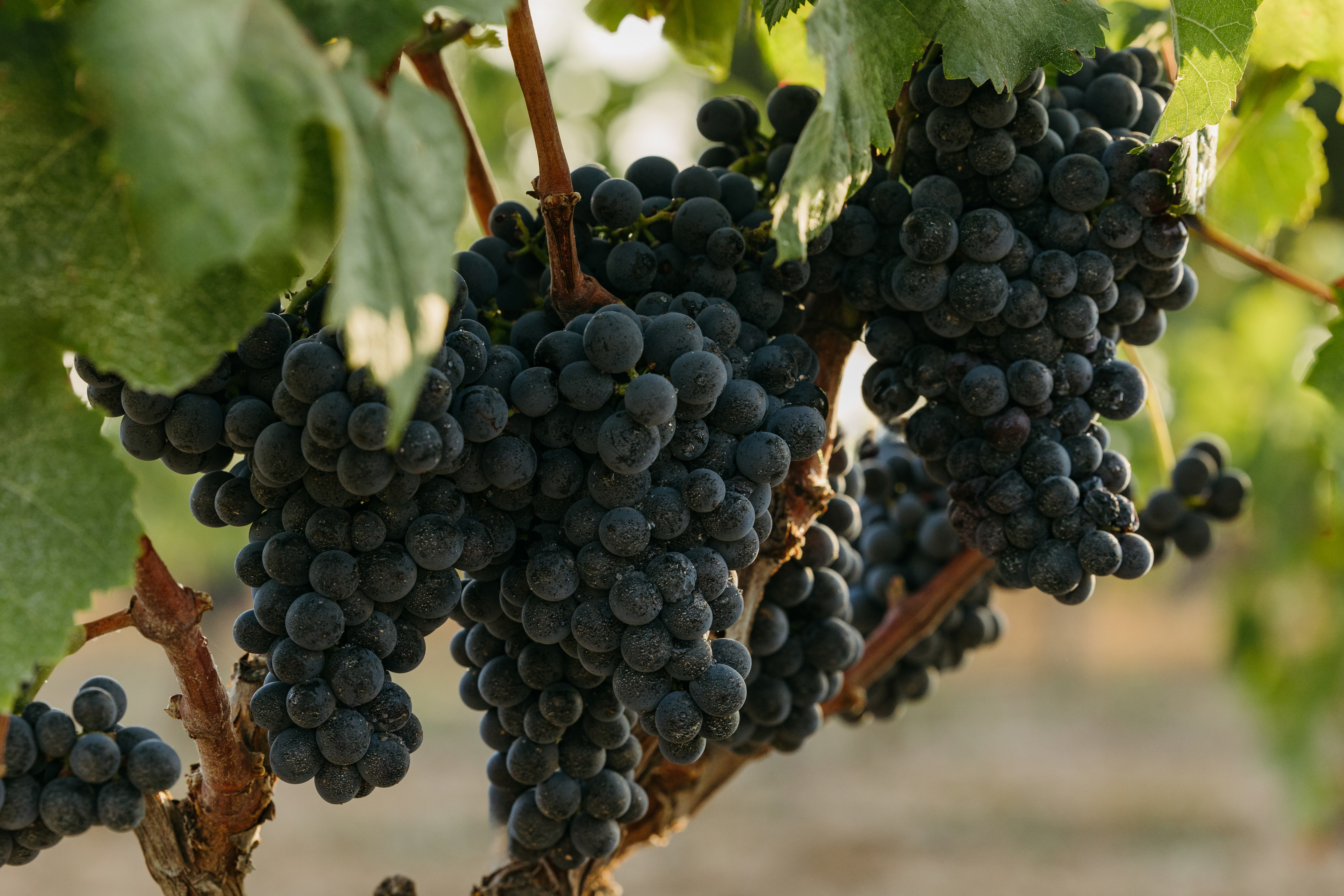Increasing Heat Waves Are Putting Vineyards to the Test

By Jose Luis Gallego, environmental communicator (@ecogallego)
As we are witnessing this summer, evidence has caught up with predictions to show how climate change is heading towards the least amenable scenarios, especially in the Mediterranean.
Despite being a crop with a thousand-year history, perfectly adapted to the Mediterranean climate and high summer temperatures, the grapevine is gravely affected by the consequences of global warming. The Iberian Peninsula is one of the areas where winegrowing is most endangered. Heat waves are occurring earlier and earlier in the year; they are more intense and persistent, challenging the resilience of grapevines to climate change.
In some of the leading wine-producing regions in Spain, high temperatures – exceeding 40 degrees Celsius – and intense sun exposure end up burning the leaves and vine shoots, causing the plant to slow down vegetative growth, halt fruit maturation, and activate mechanisms to reduce water loss through transpiration in order to survive.

Vineyard in Priorat, a Familia Torres property
When the heat wave coincides with fruit maturation, the clusters can suffer serious damage. The skin of the grapes turns brown and blotchy, and in severe cases, the pulp inside the berry can literally boil, ruining the harvest and, even worse, endangering the entire vine.
The rise in extreme temperatures, however, not only threatens the plant. It also poses an enormous challenge for winemakers who are working with vinification techniques to keep producing the kind of high-quality wines that have been the hallmark of Spanish appellations of origin thus far.
Professor Fernando Zamora, head of the Faculty of Oenology at the University Rovira i Virgili and one of the country’s leading oenologists, gave an example of this in the documentary El vino y el clima: una relación amenazada (Wine and Climate: A Relationship under Threat) produced by Familia Torres and broadcast on TVE. In the interview, he described how his team had observed that the harvest of the Macabeo variety had been brought forward 30 days over a 30-year-period in the appellation of origin DO Conca de Barberà – in other words, one day per year. This was ten years ago, and the pace of this process has only picked up since then.
We find examples of similar (or even more fast-moving) cases in other appellations and with other varieties. The dilemma that Professor Zamora described is that wine producers have two options when faced with this accelerating process – a process that is directly linked to climate change: either they harvest earlier to avoid excessively high alcohol content or they wait for the grapes to reach appropriate phenolic maturity and run the risk of ending up with a wine that is too alcoholic for what the market currently demands.
Several studies carried out by the Instituto de Investigación y Tecnología Agroalimentarias de la Generalitat de Catalunya (IRTA) point to the same trend. Their results corroborate that grapevine flowering now occurs two weeks earlier than usual whereas the harvest has been brought forward (on average) almost one month over the past 50 years. Depending on the climate change scenario that we are moving towards, this phenological disorder could bring flowering forward by a month and a half and the harvest by two to three months.
The problem is that if global warming intensifies, as outlined in climatic models drawn up by scientific experts, this imbalanced development will worsen to such a degree that producing quality wines and even winegrowing itself will become impossible, thereby threatening one of Spain’s primary food and agriculture sectors.
The answer to this serious dilemma lies in implementing a range of adaptation techniques that are currently being pursued in the sector: changes in cultivation systems, alternative varieties, moving to higher elevations, irrigation, and more. The world’s big wineries, like Familia Torres, are pouring more time and effort into these measures to tackle the climate challenge and safeguard the future of winegrowing and winemaking.
In the case of Familia Torres, the winery is not only implementing large-scale mitigation projects, but also pursuing adaptation measures, such as the recovery of ancestral varieties which had not been cultivated for many years.

The Moneu variety in a Familia Torres vineyard (DO Penedès)
The varieties in question are indigenous to the region, perfectly adapted to the rigours of the Mediterranean climate and the specific characteristics of the terrain. As exemplified by Forcada, a grape recovered by Familia Torres, these varieties display great oenological potential and a natural resistance to the steady rise in temperatures. It is about looking to the past to keep envisioning a bright future.
